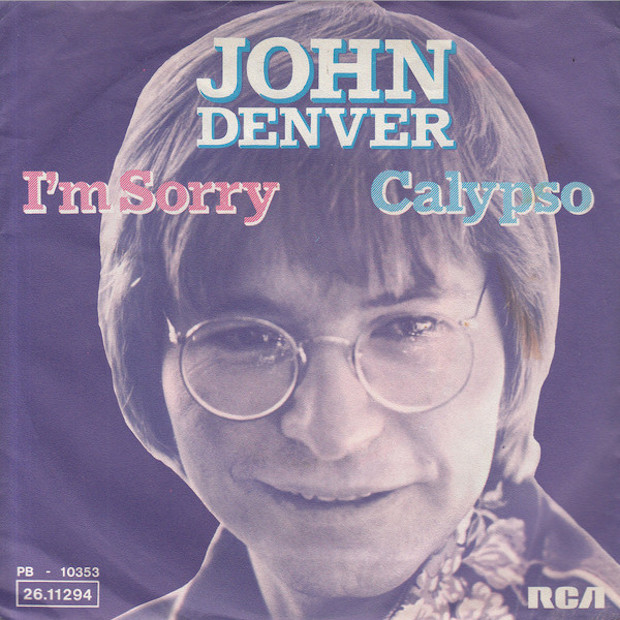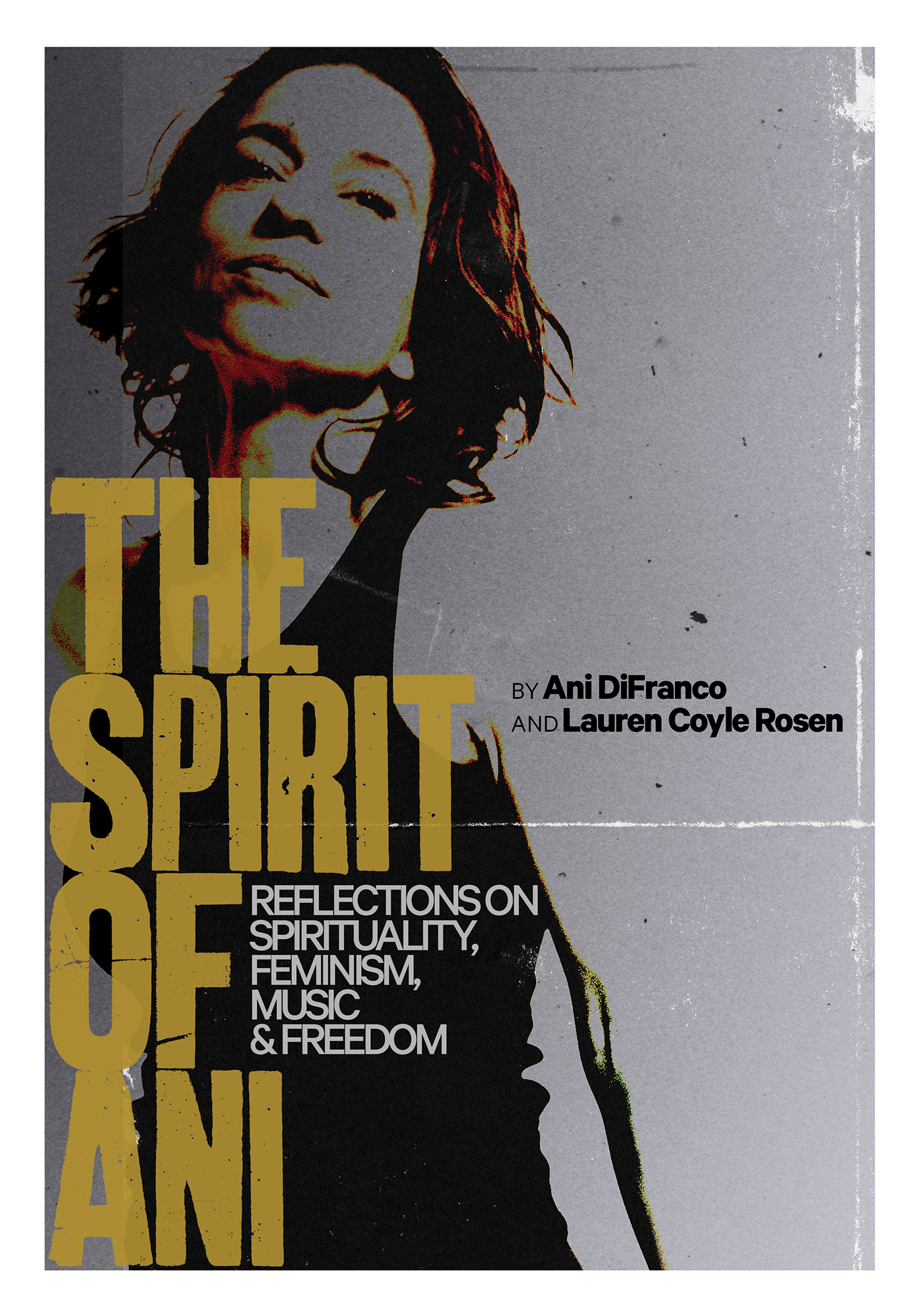In The Number Ones, I'm reviewing every single #1 single in the history of the Billboard Hot 100, starting with the chart's beginning, in 1958, and working my way up into the present.
John Denver - "I'm Sorry"
HIT #1: September 27, 1975
STAYED AT #1: 1 week
So. John Denver. What the hell was that all about? How did this glass of room-temperature milk briefly become one of America's biggest pop stars? How was he a chart titan in the era of Stevie Wonder and Elton John? Why did America decide that, at least in this one particular case, the tiniest iota of sex appeal wasn't necessarily a prerequisite for the pop-star job? Denver had songs, and some of those songs were good, but pop stardom is never just about good songs. It's about electricity, about timing, about being the one person who grabs ahold of the zeitgeist and takes off running with it. How did John Denver manage that?
In the course of writing this column, I have considered these questions at length, and I think I've got it figured out. John Denver was Ed Sheeran. We, the listening public of 2019, know what it's like to watch a genial, bespectacled, pudding-faced acoustic-guitar white guy ascend to the highest ranks of the hockey-arena circuit. We have heard simpering nice-guy love songs bursting out of the radio. We have wondered how a face like that became the kind of thing you would regularly encounter on your nearest screen.
There are differences, of course. Ed Sheeran is not outdoorsy, whereas "outdoorsy" is a word that nobody would ever use if John Denver had never existed. (Sheeran's version of the misty golden-hour ski-lift is, what, a pub?) John Denver was not covered in bad tattoos, though maybe fringed suede jackets were the '70s equivalents of bad tattoos. Denver never played around with R&B, but Denver's relationship to country music -- friendly and reverent but also guarded and arms'-length, the outsider getting invited to the party but never fully feeling comfortable -- is basically the same as Sheeran's relationship to R&B.
Both Denver and Sheeran cut quietly self-effacing figures, and both went multi-media whenever possible. Sheeran's Game Of Thrones cameo and Yesterday role are the rough equivalents of Denver's repeated Muppet Show appearances. Both seemed to realize that they were lucky dorks, not natural-born performers. Both even cut their teeth as songwriters before fully blowing up as performers. In Sheeran's case, Justin Bieber plays the part of Peter, Paul & Mary. You might groan at that, but Bieber never went to prison for molesting a 14-year-old girl.
Maybe that doesn't make the brief dominance of John Denver any less mysterious. But at least it didn't happen in a vacuum. It could simply be that American music fans occasionally need coffeehouse goofballs to become transcendent stars. And maybe it's not a coincidence that this seems to happen in moments when popular music is becoming weirder and more rhythmic and more deeply entwined with underground black club-music genres. In any case, John Denver's pop-stardom story had an ending, just as Ed Seeran's will. And that brings us to that ending: "I'm Sorry," Denver's fifth and final #1 single, and also his least memorable.
"I'm Sorry" isn't the worst of Denver's #1 hits -- that's still "Thank God I'm A Country Boy" -- but it's the most wispily generic. "I'm Sorry" has fluttery acoustic guitars. It has weepy strings. It has drippy woodwinds. It has Hal Blaine playing bongos very, very slowly. It has windchimes. (Incidentally, "Windsong," the title track of the 1975 John Denver album that gave us "I'm Sorry," is pretty funny if you imagine that it's about farts.) If you close your eyes, deeply breathe in the crisp mountain air, and try to imagine the most average John Denver song that ever existed, you might just conjure "I'm Sorry" up out of the void.
Denver wrote "I'm Sorry" himself, and it's a simple post-breakup lament. In his simplistic nursery-rhyme way, Denver luxuriates in the feeling of being alone, of missing someone: "Thinking about the good times / Thinking about the rain / Thinking about how bad it feels alone again." I don't think that rain is metaphorical. I think Denver, while thinking about how sorry he is, is actually also thinking about meteorological conditions. He's probably still thinking about trees, too.
There is one truly puzzling line on "I'm Sorry," and it's the first line of the chorus: "I'm sorry for the way things are in China." I know what he's going for here. Denver misses being in a relationship so badly that he's willing to accept blame for everything, even the things that clearly aren't his fault. In 1975, China was going through the final stages of the Cultural Revolution, suffering from widespread poverty and humanitarian abuses. None of this, as far as I know, was because of John Denver. He was willing to apologize for it, anyway. I get it. Still, it's weird to bring up "the way things are in China" and then never mention it again.
(Other topical 1975 references that Denver could've made: "I'm sorry that Jimmy Hoffa is missing and presumed dead," "I'm sorry for the shootout at the Pine Ridge Indian Reservation," "I'm sorry for former Charles Manson acolyte Squeaky Fromme's attempt to assassinate President Gerald Ford," "I'm sorry that the overwhelming success of Steven Spielberg's Jaws has ended the auteurist New Hollywood era and pushed major film studios into spending decades chasing blockbuster money.")
The "I'm Sorry" single was actually a double A-side, so "I'm Sorry" actually shares its #1 status with another, better John Denver song. "Calypso" is a tribute to Denver's friend Jacques Cousteau, and it's named after Cousteau's ship. It's a wild, starry-eyed hymn to the natural world and to the spirit of exploration, and Denver sings harder on it than he does on any of his other big hits. The song pulls out every stop -- key changes, crazy string-swells, mandolins, ships'-bell clangs. On the chorus, Denver addresses the boat directly, promising to "sing to your spirit," and then he yodels euphorically. It sounds like the showstopping musical number from a feature-length Disney cartoon that does not exist. "Calypso" is grand and shameless and embarrassing, and I like it a lot. But I decided a long time ago that I would only consider the actual A-sides of these double A-side singles, so farewell, "Calypso." I'm sorry.
https://youtube.com/watch?v=35x_rwyBh-8
Denver's star had risen quickly just a few years earlier, and it would fall just as fast. After "I'm Sorry," Denver would never land another song in the top 10. A decade after "I'm Sorry," Denver asked if he could participate in the all-star charity single "We Are The World" -- a song that will eventually end up in this column -- and he told that his services were not required. By 1985, apparently Dan Aykroyd was a bigger pop star than John Denver. Denver starred in the 1977 George Burns comedy Oh, God!, but as far as his movie career went, he wasn't brought back for the sequels Oh, God! Book II and Oh, God! You Devil. Even in the Oh, God! cinematic universe, Denver couldn't catch a break.
Denver's romantic life didn't work out well, either. He went through a messy and allegedly violent divorce with the Annie of "Annie's Song" fame, and then he got married again and almost immediately divorced again. He was also charged with drunk driving a couple of times. But Denver did pour his energies into a series of commendable charitable causes. And in a true G move, he testified before Congress in support of music with explicit lyrics, forming an oddball trio with fellow witnesses Frank Zappa and Dee Snider. Then, one day in 1997, Denver crashed his tiny experimental single-passenger airplane into Monterey Bay and died at the age of 53. So sing to John Denver's spirit, and tell Ed Sheeran to keep away from tiny experimental single-passenger airplanes.
GRADE: 4/10
BONUS BEATS: Here's the Red House Painters' cover of "I'm Sorry," from the 2000 compilation Take Me Home: A Tribute To John Denver:






